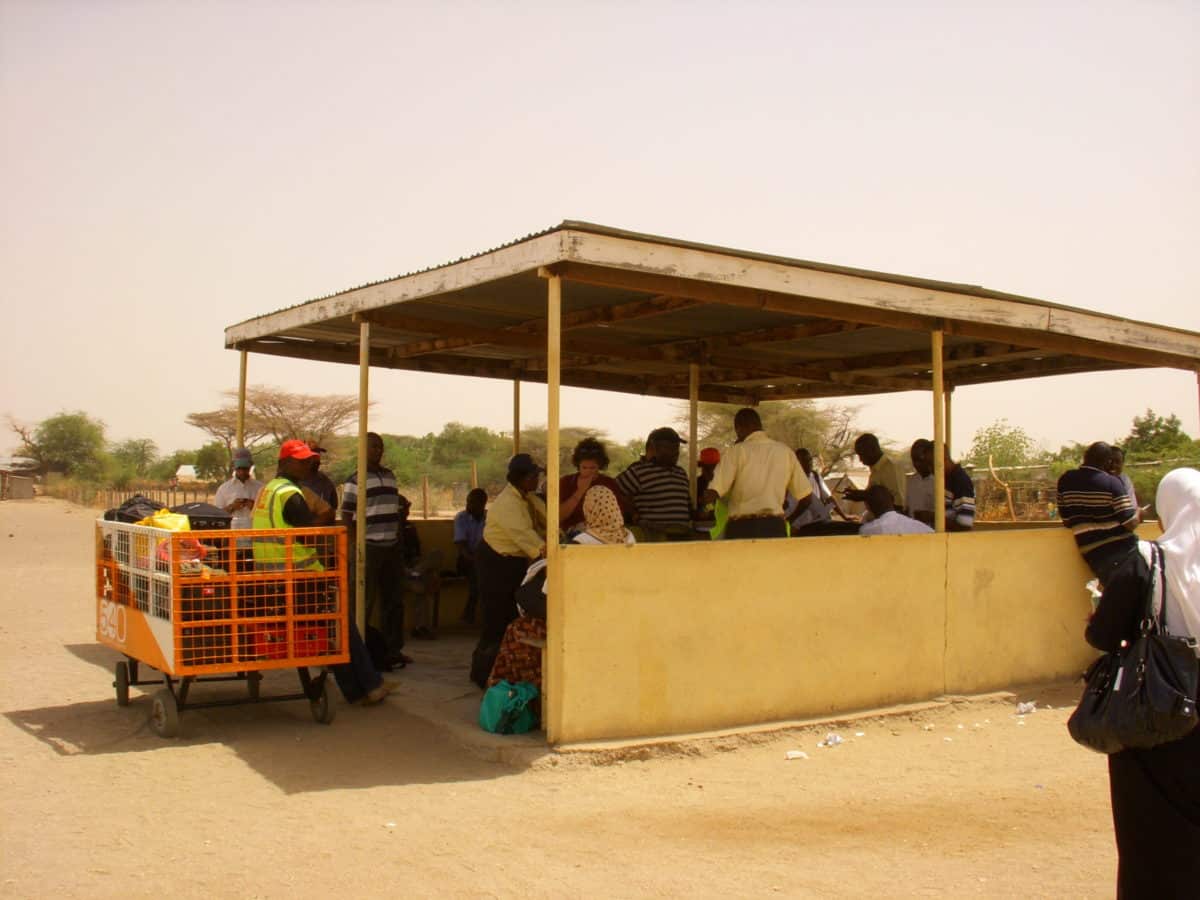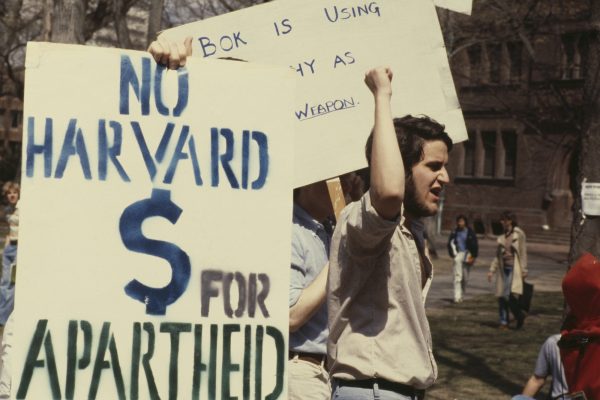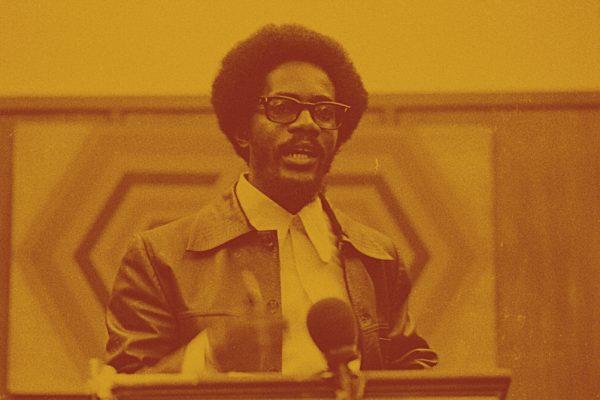Can a bourgeois revolution save the world?
In 2017 I spent a few days covering the drought in Lodwar, the largest town in Turkana County, Kenya, and one of the poorest regions in the world. Goats, perhaps the hardiest domesticated animal, were dying because there was simply no pasture left; they had taken to eating poisonous plants and plastic waste. As farmers at the market told me their stories of loss, I noticed the plastic all around us—wrapped around acacia thorns in the trees and blowing down the dusty road like some kind of modern tumbleweed. I had seen similar images in the capital of Somaliland, where they call the multicolored plastic bags rustling in the trees “the flowers of Hargeisa.” No matter how difficult it was for food and water to make its way to the driest corners of the continent, somehow plastic found a way.
As I read Kate Soper’s essay, I kept imagining how the people of Turkana would respond to it. Not that a theory or a proposal must be universally applicable. Rather, I wondered whether her ideas could be translated into fundamentally different contexts, or at least received by a very different audience than she appears to imagine. I fear they cannot, and that ultimately Soper’s essay does not see or speak to the whole globe.
To be sure, Soper begins by lamenting that the “consumer culture [capitalist production] has bequeathed is often accepted as if it were a natural legacy to be preserved as far as possible.” Like her, I regret how “mainstream politics . . . remains dominated by narrow disputes” that take a capitalist paradigm of development for granted (even under “green growth”) and that fail to “entertain other ideas of progress and prosperity.” And I firmly agree we should look to “societies with traditions of less industrialized but more sustainable methods of production and modes of consuming.”
But rather than make good on this prescription, Soper simply forsakes it. Instead she speaks to “concerned consumers in more affluent societies,” who she claims “must lead the way” in imagining “a more viable, enjoyable future.” And even then, the major obligation she appears to think such people have toward the rest of the world is making different lifestyle choices—not, say, forging a revolutionary movement against capitalism, in solidarity with (if not led by) the more sustainable societies she mentions in passing. This is not even a call for a bourgeois revolution. It is an exercise in bourgeois moralism.
Instead, I think that the critique of capitalism with which Soper begins must take precedence over calls for an “alternative hedonism” in rich countries. The crisis of the current model of development will not be mitigated simply by people in wealthy countries regulating their relationship with stuff. Certainly, it is necessary for the bourgeoisie in wealthy countries to change their patterns of consumption in order to address the perils of climate change. But there has to be a fundamental shift in the role that material goods play in our lives.
The solution is not just to work less, or to consume less. The solution is to completely gut the paradigm of what it means to exist in a shared world and begin again. Labor must be revolutionized, not merely reorganized. In short, we must completely reorient human experience away from consumption and toward harmony—not just toward equilibrium but restoration of the natural world that has been devastated so completely. The Turkana drought was caused by climate change, but the region won’t be restored by carbon credits or trading harm. The crisis will only be solved by more countries getting off the treadmill altogether.
As Soper suggests at the outset, the heart of the issue is the social construct of wealth. In capitalist societies wealth is measured by money, and more specifically by the amount of money one is able to hoard either in a bank or in assets. Making more money than you can feasibly spend in a lifetime is celebrated as success, and having a critical mass of wealth hoarders within a nation’s borders is considered good economic planning. But wealth is not just money; it is what money makes possible. Today wealth unfortunately stands for the opportunities and the perspectives accorded to those who have money, the diffidence afforded to people who have money because of what they are believed to be capable of. Wealth is the abstract measure of possibility.
There are still societies in the world in which wealth is not measured directly through money. In some communities in Kenya, for example, wealth is still measured by the size of one’s family, so people with larger families are given a certain moral cache or authority. This is independent of the ability to provide for these children, in part because it presumes a synergy with the natural world and the environment. The presumption is that if the children survived childhood then they were meant to be here, and the world will provide for them. This view clashes crudely with the money-driven society—where schools charge tuition, and nutritious food beyond what can grow near the homestead or be harvested nearby costs money. Of course, this perspective also instrumentalizes women’s bodies in toxic ways. But the underlying ethos is distinct: money is not the weight that tips the scales one way or the other to determine whether a person is wealthy.
For too many people, wealth is a fetish. Their lives are primarily organized around acquiring and maintaining it, and this scales up to the national level. Minority communities are taught that wealth is freedom. A country is considered successful when it can deliver wealth—not peace, justice, or equality. In this way even opposition to the reigning model of development can reinforce it. In countries that have no social safety net, the absence of wealth directly results in the absence of the basics—food, shelter, clothing, education, health care. In poor countries, wealth is insulation against having to see a government doctor at an under-resourced clinic, for example. When I was backpacking through a village in Togo in 2007, I had to see a doctor, but there were no private clinics around. When I went to the government clinic to get a blood test, I was given a choice between a rusted scalpel to which a piece of cotton had been stuck or a trip down to the corner shop to buy a razor. Of course, I chose the walk to the shop, but the idea that someone could walk into that clinic and not have that buffer of choice has stayed with me for fifteen years.
The people of this village aren’t poor because they lack money. They are poor because money has been inserted as an obstacle to achieving the basics of a decent life. Poverty, or the lack of wealth, is not about the lack of money but the lack of access to what money represents. It is the lack of that abstract possibility that money makes possible.
This is the more fundamental issue that unites all the propositions of Soper’s argument. The problem we face can’t be solved by nibbling at lifestyle questions. It requires the deeper philosophical engagement with what it means to live and be in the world—as well as who counts within it—that Soper gestures at but ultimately relegates to the margin. A bourgeois revolution might delay the inevitable, but unless we revolutionize the role that money plays in our societies—unless we confront the wealth fetish that divides the deserving from undeserving—we will merely be kicking the can down the road.








